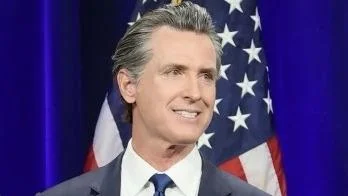
Governor Gavin Newsome | Facebook Website
During Native American Heritage Month, California has reinforced its partnerships with Native American tribes to tackle challenges in public safety, healthcare, housing, and supportive services. As the month concluded with Native American Heritage Day, Governor Gavin Newsom and his administration joined Native communities in celebrating their contributions to the state and nation.
Governor Newsom stated, "Native American Heritage Month is a chance to honor all that the Native communities in California have done, all that they’ve achieved, and all that they are still doing. As California works to address our dark past, we are proud to partner with our tribal partners as we work together to chart a bright path forward."
The celebration included California's inaugural National Native American Heritage Month Parade. Tribal Affairs Secretary Christina Snider-Ashtari and Deputy Secretary Loretta Miranda led the Governor’s Office of Tribal Affairs’ float. They were joined by Maritza Barley, Ms. UCLA Powwow Princess, and Sienna Fuller, Miss Big Pine Paiute Tribe.
Before the parade, a roundtable was held with young women who serve as community ambassadors. Participants included Miss Bishop Paiute Tribe Uriah Martinez and others holding titles such as Sukut Menyil Fiesta Princess Amelia Rodriguez Resvaloso.
In 2019, Governor Newsom issued an apology to California Native Americans and established the California Truth and Healing Council via Executive Order N-15-19. The Council aims to document historical relationships between the state and Native Americans. Its final report will be released on California's 175th anniversary in 2025.
Recent efforts include returning 357 acres of ancestral land to the Wiyot Tribe. Through the Tribal Nature-Based Solutions grant program, $107.7 million has been allocated for projects supporting land return to tribes.
Additionally, over $13.2 million has been approved through MMIP Grant funding to combat the Missing and Murdered Indigenous Peoples crisis globally recognized in countries like Canada and Australia.
To address housing issues among Native communities, more than $91 million has been allocated for housing initiatives including $71 million from Tribal Homekey awards.
Further information about these initiatives can be found through various state resources related to tribal affairs.
 Alerts Sign-up
Alerts Sign-up